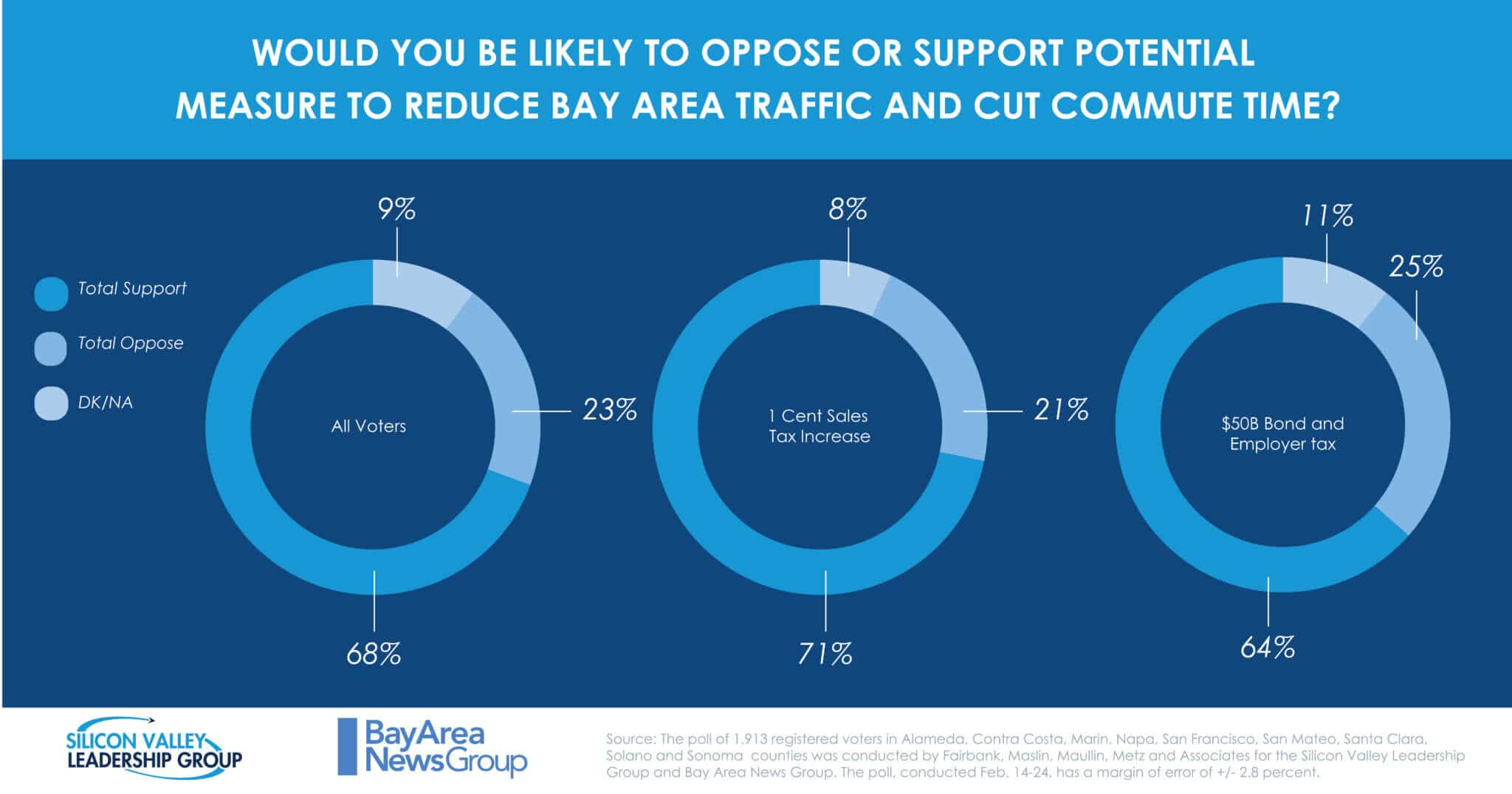The recently completed “Silicon Valley Poll” found that more than two-thirds of voters are ready to pull out their pocketbooks in support of a nine-county Regional Transportation Improvement Measure designed to address the escalating traffic and crumbling transportation infrastructure problems in the Bay Area.
Of the two potential funding sources offered – a one-cent sales tax or a $50 billion bond and “gross receipts tax” on businesses – the sales tax increase edged out the bond measure 71 to 64 percent. Money raised from the regional measure would be used to expand the area’s transit network, improve and repair roads, and improve bike and pedestrian pathways.
“Traffic congestion is a Bay Area-wide problem that needs a big, bold regional solution,” said Carl Guardino of the Silicon Valley Leadership Group. “We need to stop tackling the problem piecemeal, and start thinking and acting holistically as a region, if we truly want to make a dent in our commute time, which is second only to New York City, as the highest in the nation’s Innovation Economy regions. We have been advocating for this potential Regional Transportation Improvement Measure for four years. With a two-thirds majority needed to pass this measure, it’s looking possible for 2020 to be a transformative year for our transportation system.”
However, a potential Bay Area-wide solution to the housing crisis, known as CASA, didn’t fare as well. When asked if they would support this proposed wide-ranging plan to include revised development rules to make it easier to build housing, a region-wide rent cap and tighter limits on evictions, 43 percent of voters offered support and 42 percent of voters were opposed.
Potentially, funding would come from a parcel tax on homeowners; a quarter-cent sales tax; the sale of bonds; and business taxes including a gross receipts tax and a per-employee tax; as well as state and federal funding.
When looking more deeply at the data there were key distinctions by demographic groups, i.e., Latino and African American voters were more likely to support the CASA compact than their white counterparts, voters under 40 supported, while voters older than 40 older people did not. 62 percent of renters, but only one-third of home owners, supported CASA.
When support is broken down by county, it is interesting to note that Alameda County had the highest percentage of support for the CASA measure, followed closely by San Francisco.
Editors note: The poll of 1,913 registered voters in Alameda, Contra Costa, Marin, Napa, San Francisco, San Mateo, Santa Clara, Solano and Sonoma counties was conducted by FM3 Research for the Silicon Valley Leadership Group and Bay Area News Group. The poll, conducted Feb. 14-24, has a margin of error of +/- 2.8 percent.
March 27, 2019






